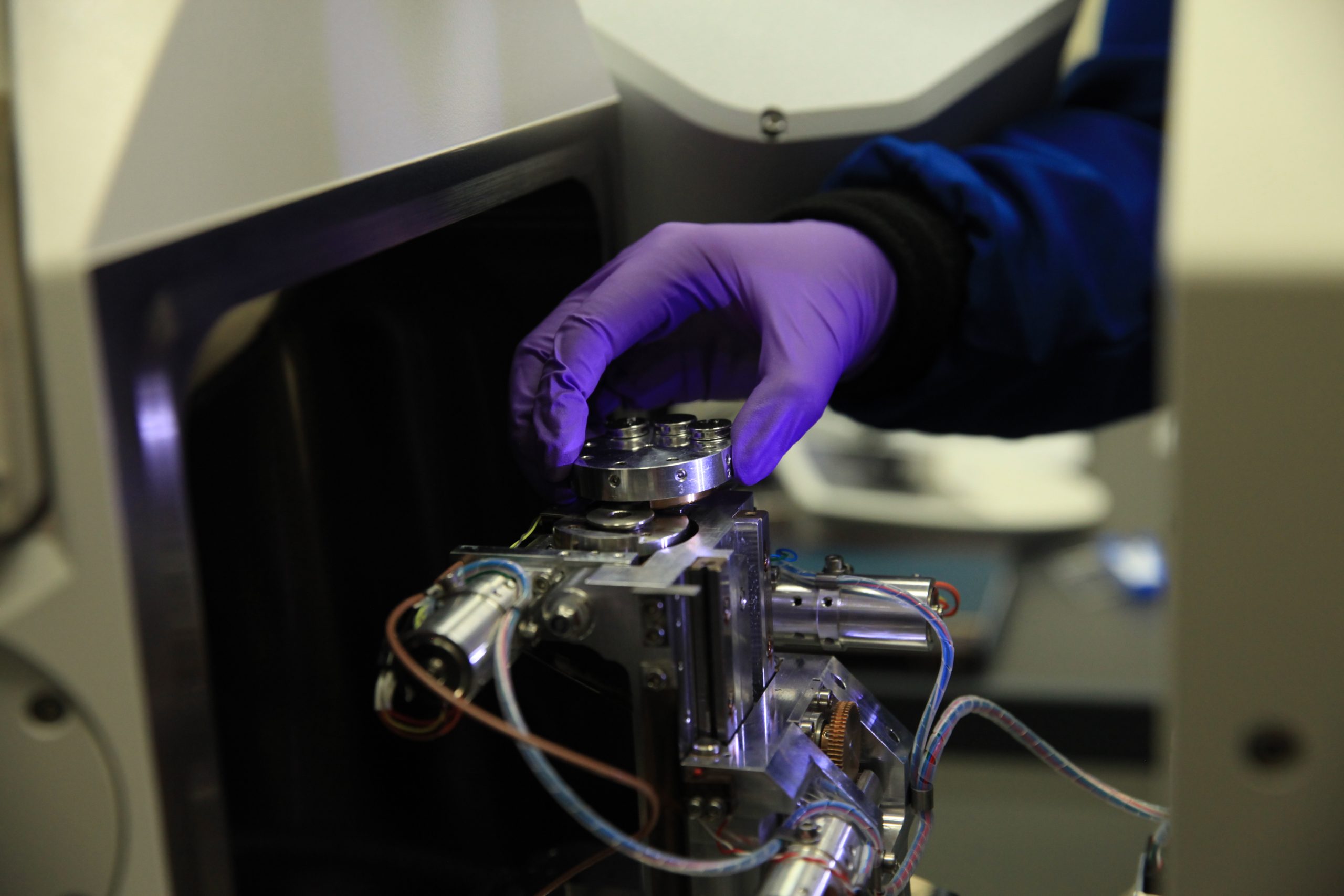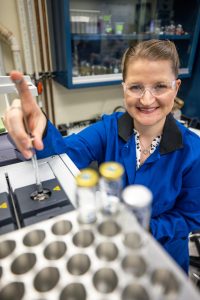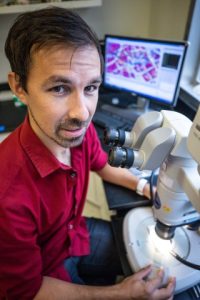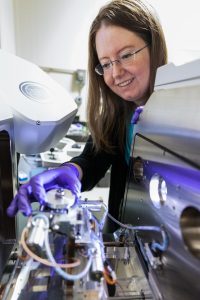
NASA Investigative Chemistry Laboratory (NICL)
The Chemistry Laboratory portion of CLS provides a full spectrum of state-of-the-art analytical instruments for both qualitative and quantitative analyses of non-volatile organics, volatile organics, elements and ions to meet diverse operational and research needs. The laboratory performs chemical analyses for identification of unknown contaminates/materials; support of failure analyses and testing in support of multiple programs. Provides real-time problem solving, testing, and support to multiple NASA and KSC programs.
The Chemistry Lab can provide microscopic imagery and analysis through the use a wide variety microscopic techniques. The use of EVO Scanning Electron Microscopes (SEM) coupled with energy dispersive spectrometers, which allow for highly detailed resolution of the form and structure of both materials and life science applications on uncoated and on nonconductive samples such as swabs or tape pulls. This resource can be used for a wide array of purposes, including, for example, identifying contaminants or documenting materials processing on an elemental level. Other microscopy techniques are: optical stereo microscopy with coaxial illumination, transmitted Polarized light microscopy, differential interference contrast (DIC) microscopy, fluorescence microscope (Blue-Green-UV), fourier transform infrared microscopy, dispersive Raman microscopy, EVO Scanning Electron Microscope with energy and wavelength dispersive spectroscopy.
- Elemental and Ion Analysis:ICP-OES Spectrometer, TOC/TN Analyzer,CHNS/O Elemental Analyzer, IC/Suppressed Conductivity Targeted organic compound analysis:GC/ FID/TCD, HPLC /Diode Array Detector & Evaporative Light Scattering Detector, HPLC /Pulsed Amperometric Detector GC/Mass Spectrometry (MS), HPLC/Ion Trap Mass Spectrometry
- Safety shower
- Network
- Sink
- Gases
- FTIR, SEM, EDS, WDS, XRF, ICP, OEM, GC/MS, IC, XRD, PLM, wet chemistry, NVR characterization
- Instron, 4-point probe
- 50-ton Injection Molder
- Thermogravimetric Analyzer
- Differential Scanning Calorimeter


